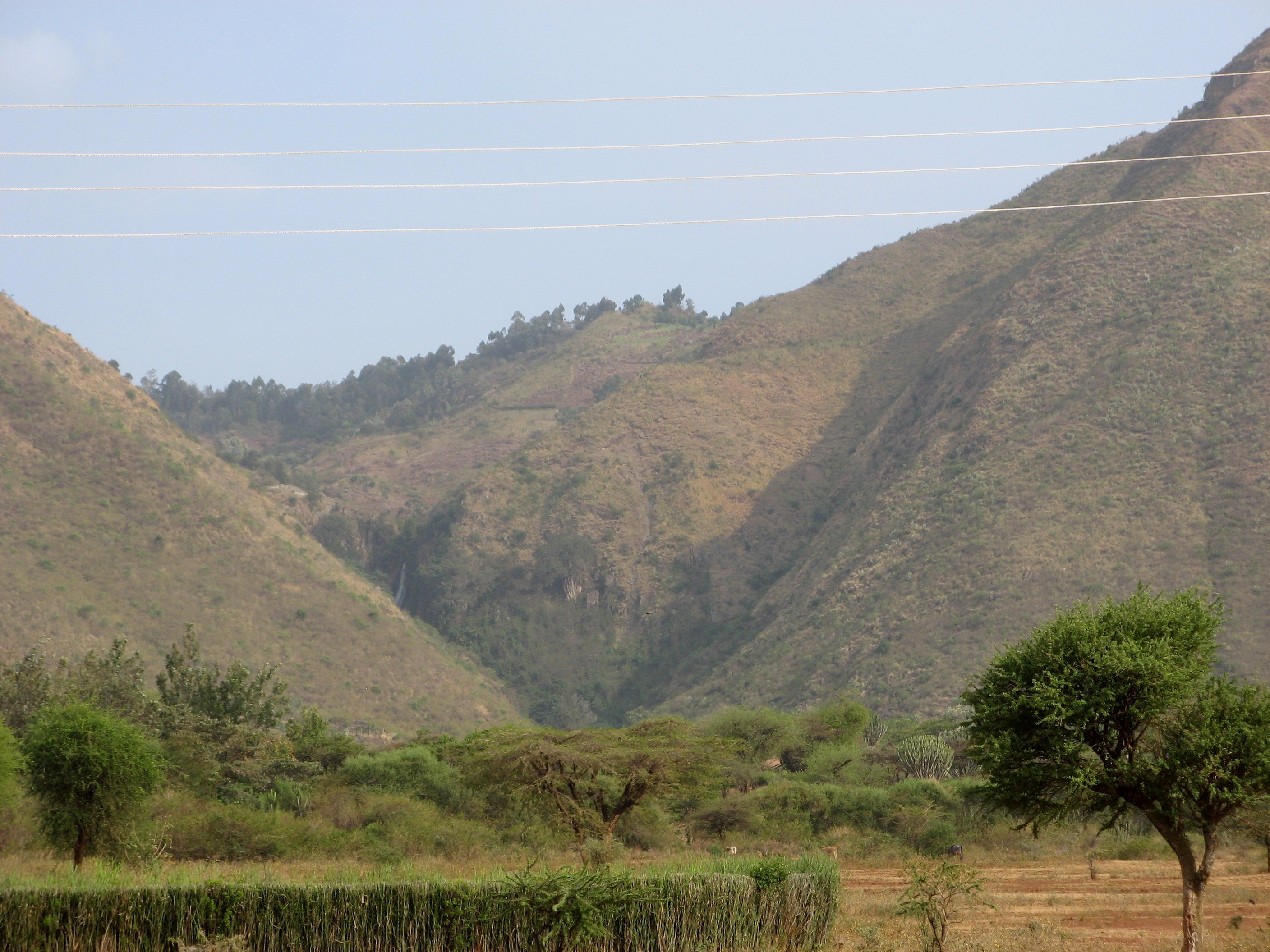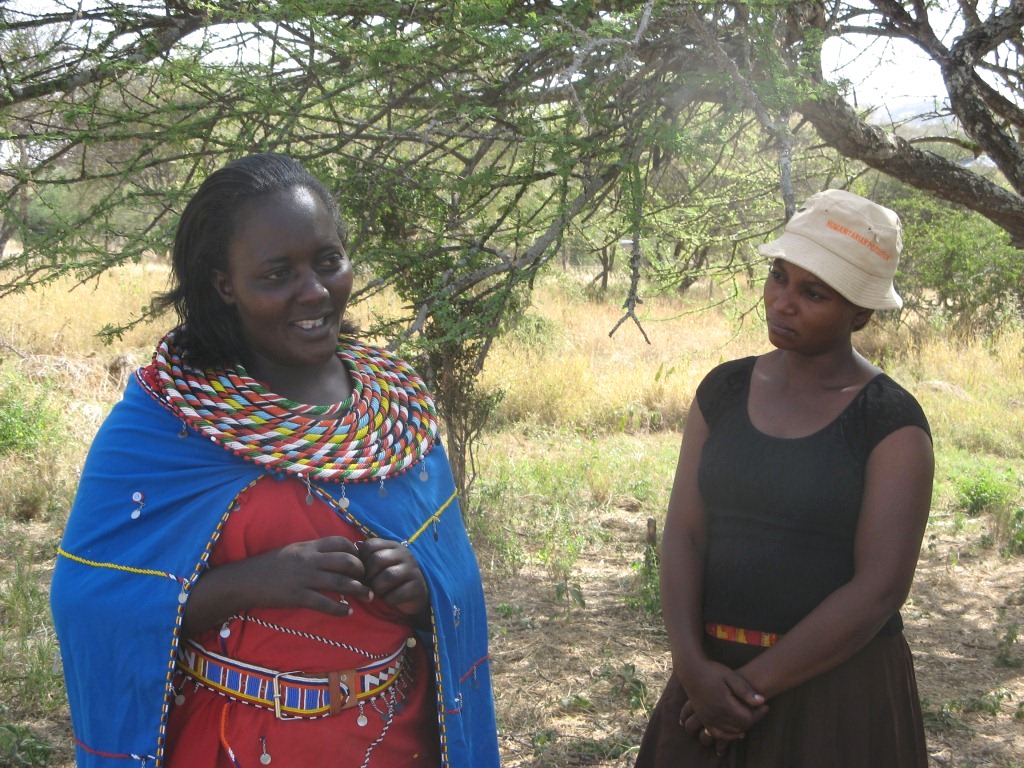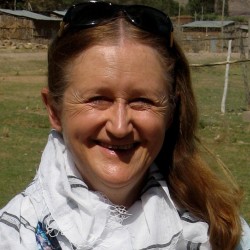Visiting Kenya Projects
April 2, 2012
We travelled from Nairobi to the Central Rift Valley (around Nukuru) to understand how relevant Farmer Managed Natural Regeneration (FMNR) of trees might be to WV Kenya projects. Before we reached the first project, we were struck by mile after mile of denuded hills, water-damaged roads, huge gullies and evidence of soil washing off farms.

It is always exciting to meet with community economic development groups and hear how their capacity has been enhanced to work as a group, manage community savings and loans projects, manage bees etc.
Tony helped one economic development group in the Central Rift Valley to understand how the denudation of the hills had caused their streams and springs to dry up, the flooding and erosion in the rainy season, the loss of tree fodder for their animals, the reduction of predators that used to control their insect and rodent pests and the loss of tree products that they used to rely on.
After he shared the FMNR experience from Niger, the group became quite excited. They saw immediately that they as a group, representing over 100 farming families, would be able to regenerate the forest on the hills above their farms. When we asked if they had user rights to the hills they said that they did and that with the training that World Vision had given them, they would now able to negotiate with local government, on behalf of local farming families, on any issues that might arise. We left the area feeling encouraged that one group and the local World Vision staff had been given hope that they could act to restore their environment, improve water supply, reduce flooding in their area and increase both productivity and profitability.
Beekeeping is one activity promoted in economic development groups. The owner of these hives immediately saw how he could increase his honey production and have more fodder for his cattle by practising Farmer Managed Natural Regeneration of trees.
Meet two remarkable women: Rosemary and Mary

Rosemary
Rosemary has rescued 6 girls from early marriage and various kinds of abuse and deprivation by their families, standing up against cultural norms and community pressure.
Since she was a small girl she challenged her family’s expectations. Maasai girls did not usually attend school but she cried until her father let her attend. As they moved from one place to another, she pleaded with her father until he organised the transfer to the next school. Although she married before she finished secondary school, she resumed study six years later to complete her certificate in Early Childhood Education and is planning to start her Diploma. She is a trainer of trainers in understanding Kenyan Law as it relates to community economic activity and women’s rights and is passionate about the continuing education and empowerment of women.
We met Rosemary at the Twala cultural Manyatta (compound) where she is a member of one of five women’s groups which work together to empower Maasai women and refind their culture. She has obtained sponsorship by World Vision for the girls she has rescued so that they can continue their education. The group is managing 80 beehives, is testing energy efficient stoves and a biogas stove, has developed a “Walking with the Baboons” eco-tourism enterprise and is part of the group ranch which is managing the grazing lands for improved grazing and wildlife.
We briefly “walked with the baboons”. The troop of roughly 30 continued to romp and feed on prickly pear fruit while we walked amongst them (I was removing cactus spines from my skirt for days).
We talked with the local World Vision staff about the problem of prickly pear in the area. It is taking over large areas of grazing land and the spines cause mouth problems in sheep, goats and cattle. We noticed several examples of infestation of the cactus by the cochineal bug and suggested that the WV staff follow up with local Department of Agriculture and research institutions on whether cochineal or another form of biological control is possible and whether cochineal could be harvested by the local community as an alternative source of income.
Mary
Mary also grew up in a village and is now the World Vision Coordinator for Livelihoods and Resilience in East Kenya. Young and small in physical stature, she impressed us with her courage, her competence and her immediate rapport with village women. Responsible for programs in Food Security, Food Aid, Disaster Resilience, Disaster Risk Reduction, Economic Development and Water, Sanitation and Hygiene, she identified her three greatest achievements so far as being:
- Building the capacity of World Vision East Kenya staff in the above six sectors so that they are more effective in their roles,
- Ensuring adequate monitoring of programs so that the desired impact of projects is achieved and
- Shifting the emphasis of food aid programs from handouts to food-for-work so that communities work to build community assets in return for their food aid.
Until next time
Liz

Liz is travelling in Africa with her husband Tony Rinaudo, a natural resource management advisor with World Vision Australia, encouraging communities, non-government organisations, governments, research organisations and others to scale up reforestation over large areas.
